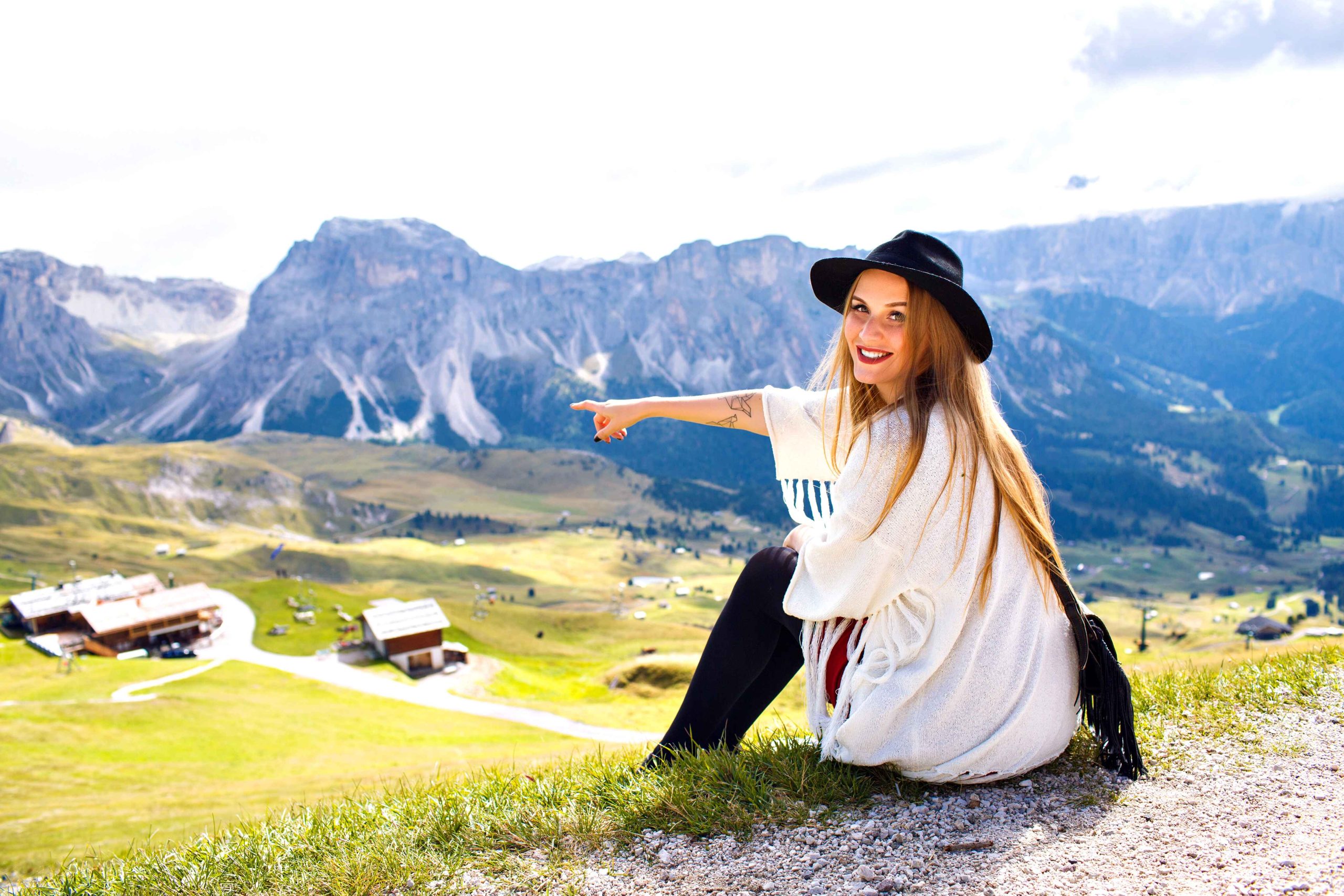Table Of Contents
- Sustainable Tourism In The Alps: Origins
- What Is A Sustainable Lodge In The Alps All About?
- Is Switzerland The Epicenter Of Green Opulence?
- Is Germany The Perfect Blend Of Alpine Simplicity And Green Development?
- Is Slovenia An Undiscovered Green Jewel?
- Architecture/Design: Blending Aesthetic Tradition With Modern Comforts
- Sustainability Of The Taste Buds:
- How To Book An Eco-Friendly Experience In The Alps?
- What's Ahead For Eco Stays In The Alps?
- Eco Lodges Are Changing Luxury In The Alps For The Good!
Eco-Lodges And Sustainable Hotels In The Alps
While the hospitality industry takes a breather in the snowy slopes of the Alps, where trees meet glaciers, it’s been touted as a destination for high-end hotels and winter chalets offering anything but the essentials. Where these used to be championed for their high-end price and fantastic offerings, now, they’re at the forefront of sustainable tourism.
Eco-lodges and green hotels recreate comfort in aesthetically pleasing structures that pay more homage to the naturally occurring options than human-caused contraptions. From solar energy chalets to zero-waste mountain resorts, Europe’s bosom is a luxurious, environmentally friendly paradise.
Sustainable Tourism In The Alps: Origins
The true concept of sustainable hospitality in the Alps comes from a need to survive – not from an economic or touristic advantage.
The Alpine community has historically constructed buildings using local cedars or stone, taking advantage of the natural thermal qualities of these materials to keep naturally formed structures insulated.
In modern society, the most skilled architects and hospitality minds emulate these concepts through a modern, natural aesthetic that embraces green-minded practices.
Moreover, new hotels and offerings emerge in the mountains not as gaudy distractions against the picturesque views. But as additional offerings that become part of the surroundings, partaking of natural resources without taking over the carbon footprint of the local fauna.
As such, hospitality offerings emerge as extensions of mind-changing.
Geneva to Val Thorens ski transfer service complements this shift by offering eco-conscious travel options that align with the growing demand for sustainable luxury in the Alps.
Travelers more often than not try to fulfill needs that fill them with offerings good for body and mind.
From carbon-neutral lodges for sleeping to farm-to-table bistros where the ice-capped mountains are only outdone by the organic arugula salad derived from a farm twenty steps away, international visitors realize that they have come to the Alps for the views.
Additionally, they’re also learning that potential for transformation toward something more is palpable, an oasis of sustainability where responsible luxury abounds.
What Is A Sustainable Lodge In The Alps All About?
A sustainable lodge in the Alps is more than an aesthetically pleasing structure; it’s a lifestyle that works best symbiotically with nature. Moreover, such a property is built with sustainability in mind.
From geothermal heating and solar power to rainwater catchment and cross ventilation to eco-insulated features that require minimal energy at any occupancy level.
In addition, sustainability minimizes waste efforts. Many sustainable lodges do not allow single-use plastics on their property, composting organic waste for farms down the road to utilize.
Meals prepared on-site are made with products from local farmers and artisans, both to reduce transportation emissions and to bolster local economies.
Above all else, sustainable lodges in the area make life easier for humankind, allowing humankind and nature to coexist peacefully, comfortably, and responsibly.
Is Switzerland The Epicenter Of Green Opulence?
Switzerland has always been proud to be one of the world’s pioneers in eco-tourism, and when travelers think about Switzerland, they think about precision; it’s no surprise that its measures of sustainability are precise.
The Whitepod Eco-Luxury Hotel near Monthey has set a new standard for hospitality worldwide. With modern geodesic domes and wood-stove-heated living quarters powered by renewable energy, the goal is a minimal ecological footprint with maximum tranquility.
The Waldhaus Sils in the Engadin Valley boasts over a century’s worth of hospitality with modern, sustainable approaches today.
This includes:
- solar energy production,
- electric car charging stations, and
- waste reduction efforts.
As a result, Swiss establishments are proving that just because something is sustainable doesn’t mean it’s unpalatable; it’s just as palatable as it is sophisticated, with remarkable responsibility.
Is Germany The Perfect Blend Of Alpine Simplicity And Green Development?
The Bavarian Alps champion sustainable hospitality alongside craftsmanship and tradition. Berghotel Rehlegg in Ramsau bei Berchtesgaden is a quintessential representation of eco-travel approved by Germany’s authority.
It proves climate-positive, offsetting more emissions than it’s responsible for through renewable energy, regional organic farm collaborations, and CO2- and biodiversity-protection initiatives.
The design ethos embraces simplicity – natural materials, soft light, and minimalistic ornamentation inspire connection and calm.
Regionally sourced meals are the mainstay, with options to join workshops on sustainable cooking or herb remedies. The takeaway? In the contemporary Alps, excess is not luxury – intent and inclusivity are.
Is Slovenia An Undiscovered Green Jewel?
Yet to be overrun by tourists, the Julian Alps of Slovenia are becoming a beacon of sustainable development for mountainous travel.
With Bohinj ECO Hotel at Lake Bohinj as an eco-hotel leader, this property utilizes heat pumps, solar panels, and a private water supply to generate energy independence. Moreover, the design replicates Triglav National Park’s aesthetics to invite guests to enjoy nature’s majesty without harm.
The sustainability aspect runs deeper than hotels in Slovenia. The country’s tourism tendencies globally crusade eco-consciousness through the Green Scheme of Slovenian Tourism, certifying regions of travel by upholding similar principles that allow travelers to breathe easily.
Here, authenticity remains abundant – family-run lodges serving homegrown specialties, cultural experiences trending over material gains remind visitors that luxury is relative.
Architecture/Design: Blending Aesthetic Tradition With Modern Comforts
Finally, one of the crucial components of eco-lodges throughout the Alps is the architecture itself. Designers take cues from necessary chalets and construct with 21st-century sustainable trends in mind.
Panoramic windows invite the outdoors in for natural light and expansive views. Green roofs pair with thick insulation to reduce energy needs.
Many of the new builds use cross-laminated timber (CLT), a renewable, low-carbon substitute for concrete and steel. The end product is a blending of comfortable needs and conservation – these buildings stand not above the terrain but rather belong to it.
The interiors inspire fields of peace – open fireplaces, recycled materials used for furnishing and decoration, and natural colors that reflect the burgeoning beauty of local peaks.
Sustainability Of The Taste Buds:
Eating is part of the eco-lodge experience. Many chefs in the Alps boast locally grown, harvested, and foraged food sources from their neighboring farms and suppliers.
Some hotels even have extensive kitchen gardens with their herbs and vegetables and benefit from nearby meats, honey, and dairy products.
Chefs rotate menus daily with what’s available, which means that a guest could have homemade alpine yogurt for breakfast one day, mountain trout for lunch, and locally produced herbal tea for dinner on successive days.
Culinary sustainability is as much about healthy tastes as it is about celebrating the landscape and culture and understanding the community.
How To Book An Eco-Friendly Experience In The Alps?
When exploring eco-friendly travel options in the Alps, it’s best to start by finding regions that offer eco-friendly policies.
For example, Tyrol, Graubünden, and South Tyrol are areas with eco-hotels and extensive public transport. Also, this is important because you cannot rely on cars to get around, which is good news.
Plus, avoid driving and book rail tickets between countries to minimize your carbon footprint. Routes like Geneva to Chamonix or Zurich to Lucerne are scenic enough that you’ll be thankful you left the driving to someone else.
Always book directly with hotels for the best price while helping local economies. Before arrival, ensure your hotel is as eco-friendly as it seems.
From there, it’s best to travel with reusable items, avoid excess packaging at all costs, and participate in on-site eco-friendly programs to increase the likelihood of sustaining the beautiful landscapes you’ve come to appreciate through eco-conscious hospitality efforts.
What’s Ahead For Eco Stays In The Alps?
Alpine hospitality’s future relies on green innovation and community resiliency. Hotels, architects, and municipal developers come together to create zero-emission accommodations. In addition, we are looking at the rise of carbon-neutral villages and circular economies that generate no waste.
Many lodges test advanced solutions – how? With geothermal heat recovery, rainwater restoration, and even smart energy expenditure monitoring. This will help sustainable ventures that don’t sacrifice comfort for eco-friendliness.
Also, they strive to educate their guests. Future lodges will integrate guests into the sustainable experience by providing hands-on learning opportunities. Imagine workshops on local ecology or an afternoon spent planting trees where you’ve just enjoyed a view.
Moreover, locals are introducing travelers to regional producers on tasting expeditions. Inviting travelers to engage rather than observe fosters a different sort of tourism. This eco-lodge tourism is filled with awareness.
So, when the Alps are engaged with sustainability, they become champions of how the rest of the world should see sustainable tourism going forward.
Eco Lodges Are Changing Luxury In The Alps For The Good!
Eco-lodges – and sustainable tourism in general – change the idea of luxury within the Alps. It’s not about excess. It’s about connection.
Connection to nature, connection to the local culture, and connection to oneself. Ultimately, these havens exude what it means to be comfortable in one’s skin while simultaneously being transformed through a conscientious experience.
These lodges impart wisdom upon travelers that luxury is for both the earth and the soul. Ultimately, these eco-friendly hotels will be at the heart of hospitality, as the Alps prove that such a venture is not limited by a lack of aesthetic grace and comfort but is instead bolstered by enhanced beauty.
Each stay is more than just another vacation within these mountains; it’s a promise, a silent agreement to keep them as majestic as travelers once found them upon leaving. And the greatest luxury is knowing that you’ve left them exactly as you found them.















